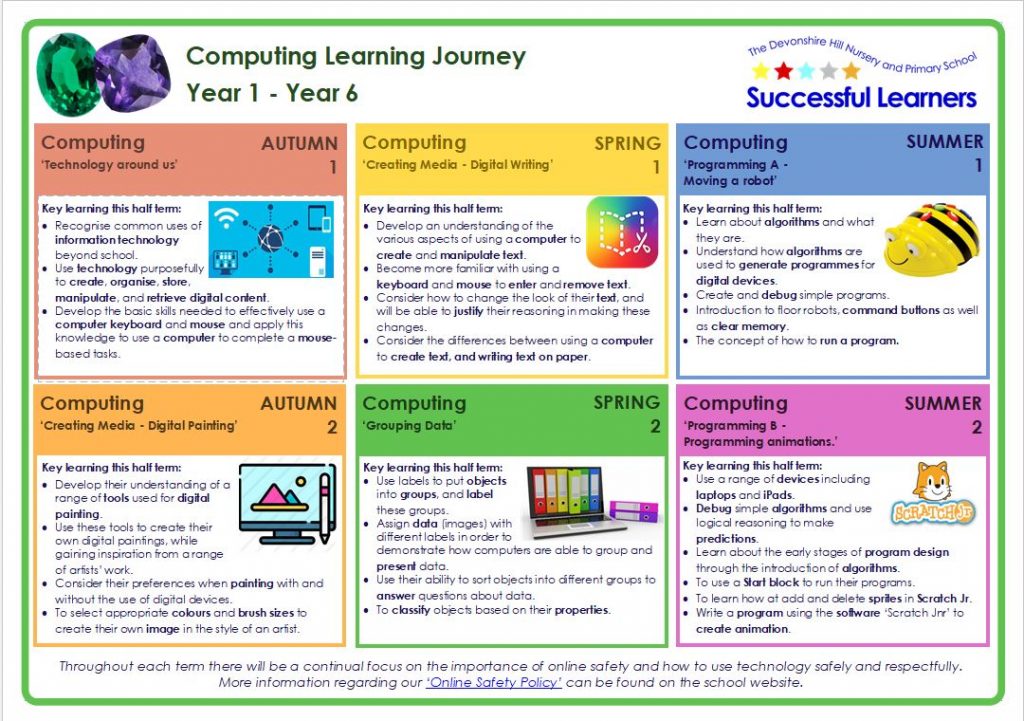Computing Learning Journey
Click on image to view…

Intent
The computing curriculum at Devonshire Hill is designed to progressively develop children’s skills in computing. Our intention is to make links with mathematics, art, science and design technology through computing as part of our broader curriculum. This takes place through combining both cross-curricular and discretely taught lessons. We aim to develop children’s computational thinking skills, knowledge of computer science concepts and application of digital literacy skills. Our children use information technology to create digital content that enables them to express themselves and develop their ideas as active participants in a digital world.
Underpinning our approach is a commitment to the teaching of how to use technology safely and respectfully. Learning and teaching within the computing curriculum empowers children to become digitally confident in their daily lives which helps to prepare them to become independent users of technology beyond the classroom.
Implementation
Teachers at Devonshire Hill have great computing subject knowledge and access to excellent CPD in order to develop their practice. This enables them to plan engaging learning experiences that develop digital understanding and reasoning.
We follow the National Curriculum for computing and all classes from Year 1 through to Year 6 have timetabled computing lessons. Children will develop their skills such as understanding algorithms, creating and debugging programs, they will use logical reasoning and analyses enabling them to evaluate and present data and information. Children will select, use and combine a variety of software (including internet services) on a range of digital devices. Some of the work will take place in our dedicated STEAM Engine, which is a very well-equipped resource for Science, Technology, Engineering, Art and Maths. Teachers use assessment for learning strategies and each half term children from Year 1 to Year 6 are assessed for their progress and understanding in computing lessons.
The teaching of computing will include learning how to use technology safely, respectfully and responsibly. We will teach children how to recognise acceptable and unacceptable behaviour and a range of ways that they can report concerns about contact and content on the internet or on other online technologies. We regularly teach the children how to stay safe on line using online materials and the CEOP Think U Know resources.
Impact
The teachers at Devonshire Hill have high expectations, enthusiasm and passion about computing and understand how it inspires and motivates pupils. As a result, pupils demonstrate excellent understanding of important concepts in all areas the computing curriculum and are able to make connections within the subject.
They have highly developed transferable knowledge, skills and understanding. Teaching and learning empower pupils to be content creators, not just content consumers. Pupils across the school show high levels of originality, imagination, creativity and innovation in their understanding and application of skills in computing. We believe that every child should have a secure bank of computing knowledge and experiences to enable them to confidently embrace the challenges of secondary school curriculum.
The school has a clear structure for teaching children to be digitally safe especially when accessing the internet. The impact of this is part of an ongoing training programme and review.
